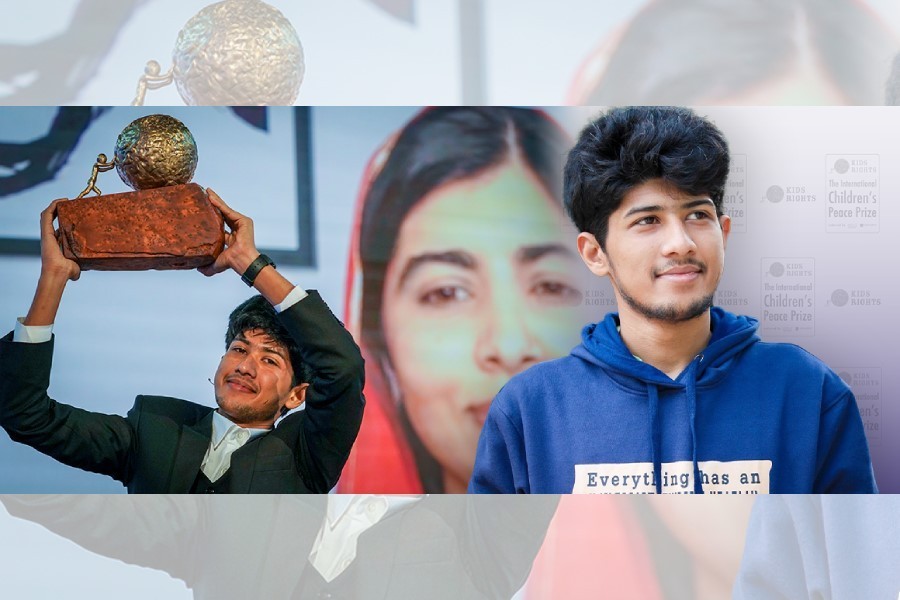Bangladesh has got a recipient of a globally famed award considered children's Nobel Prize. The award is the International Children's Peace Prize and this year's winner is Sadat Rahman, a 17-year-old 12th grade arts student of Abdul Hai City College in Narail District under Khulna Division. If the pedigrees of previous winners such as MalalaYousafzai and Greta Thunberg are taken into account, the significance of Sadat's win of the prize dawns on those who are not adequately familiar with this annual prize. Here is an award that recognises extraordinary achievement by teenagers up to 18 years old in promoting child rights. Sadat had to compete with 142 contenders of his generation from 42 countries before being crowned with the laurel. The Netherlands-based Kids Rights Foundation finalised his ultimate selection. A proud winner of the coveted award, the college student has also made the country proud and earned a niche for the country in the world map.
His 'Narail Volunteers' is a youth organisation engaged in social work. The most outstanding programme is anti-cyberbullying. Inspired by the tragic death of a teenage girl he developed a mobile app called 'Cyber Teens' as a potential tool to fight cyberbullying in Narail. More than 2,000 children have made use of the app there. Considering the utility of the app, it may one day be introduced not only all over Bangladesh but also all across the wide world subject to its further development. Sadat's is an inspiring feat. He has proved that in resourcefulness of head and heart, young people of this country do not at all lag behind those in developed countries. Students from the Institute of Business Administration, Dhaka University and other universities and even colleges have won, on different occasions, championships competing with their counterparts from the world's best academia including those of the Ivy League.
What is needed is to create an enabling environment and spread it equitably throughout the country. Where Sadat's speciality lies is the application of his invention. From conceptual stage to codifying it into an app is one thing but making it useful to those who are in a dire need of help is a completely different proposition. The young boy has done it successfully. Here idea, theory and action found a happy combination to put up a strong resistance to a vicious social ill to which 49 per cent of the country's young population fall victim. In the United States of America the percentage of such bullying is 59 per cent.
The way the app has been conceptualised to contribute to reducing cyber crimes such as bullying, hacking, spamming, rumour mongering is surely a novel step. Teenagers are made aware of such crimes. Once they fall in traps of cyber bullies, the victims can inform Sadat's organisation. The volunteers quietly persuade the bullies without revealing the identity of the complainants. If this does not work, the volunteers under an arrangement reached earlier can directly contact the superintendent of police for action. So far 60 cases have been settled through negotiation and eight cyber criminals hauled into prison. Clearly, this method is replicable in all the districts here and anywhere in the world. There lies the strength of the novel app and its application.


